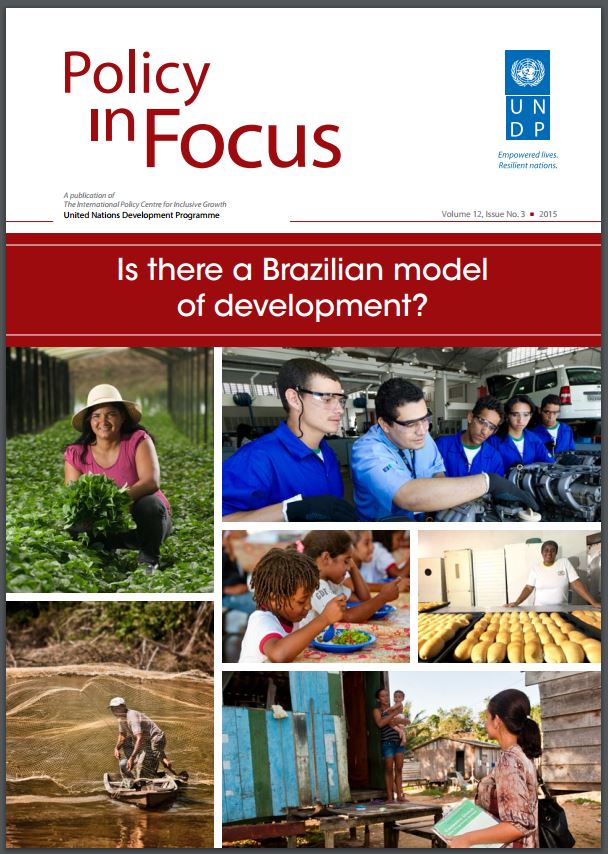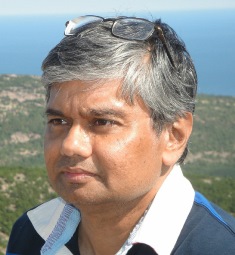How can poor people be brought into formalised economies?
Research Director of the Effective States and Inclusive Development Research Centre Professor Kunal Sen has published a new book: Out of the Shadows? The Informal Sector in Post-Reform India. Here he investigates how the poor can be brought into formalised economies.
In recent decades, a number of countries in the developing world have experienced rapid economic growth. Surprisingly though, in the formal sector this growth does not seem to have resulted in high rates of employment.
The global financial crisis is one factor that has led to employment in the formal sector stagnating, or at best, increasing at a slow rate. Simultaneously there has been a rapid rise in the size of the informal sector in many developing countries which has provided residual employment for many retrenched formal sector workers. The informal sector allows for a much needed breathing space for the majority of workers and the importance of this sector as source of jobs and a cushion for adverse economic shocks has been realised by policy-makers.
However at the same time there is concern that, although the informal sector is large and a source of employment, it is also less productive than the formal sector and not contributing much to India’s economic growth.
Policy makers in India face a conundrum. One option is to advocate for a reduced informal economy and relocate as many workers as possible to the formal sector. Another is to promote the well-being of the informal sector and take steps to enhance its vitality and inherent dynamism. read more…
Is there a Brazilian model of development?
By Armando Barrientos and Edmund Amann. Originally published in Policy In Focus, a publication of the UNDP’s International Policy Centre for Inclusive Growth.
As the world begins to wake up to the dire social and economic consequences of rising inequality, we must recognise that it is not an inevitable side-effect of economic growth and development. Many Latin American countries, and Brazil in particular, have demonstrated it is possible to achieve inclusive growth, which has reduced inequality and poverty.
Despite its current difficulties, Brazil offers a striking example of inclusive growth. Inequality has fallen sharply over the past decade and a half, a period which has also seen the country lift an estimated 40 million people out of poverty. Although growth rates have been modest in comparison to China or India, Brazil has implemented a raft of measures to ensure the results of such growth have been shared throughout society. While Brazilians have seen their incomes rise, the poorest have benefited most.

The growth experienced by Brazil hasn’t simply been attained through the unsustainable exploitation of natural resources. Despite serious lingering problems, deforestation rates in the Amazon have fallen remarkably since 2004. New jobs have been created, child mortality has plummeted, and schooling rates have increased.
So how have these gains been achieved, are they sustainable, what challenges remain, and what can other developing countries learn from Brazil’s experiences? These were the questions asked by a team of researchers from Brazil, Europe and the USA who formed the International Research Initiative on Brazil and Africa (IRIBA). This issue of Policy in Focus looks at the findings and insights they have produced.
The foundations of Brazilian progress can be traced back to the transition from a dictatorship to a democracy in the mid-1980s and the vision for the country which emerged. A firm consensus between citizens and politicians to address the ‘social debt’ created by soaring inequality set the country on a new path. After the economy was stabilised in the mid-1990s, the economic management pursued by successive governments enabled innovative social policies to flourish.
As a more inclusive and prosperous Brazil has developed, the public demand for further progress has also grown. The large protests surrounding the 2014 Football World Cup, worries about an economy mired in recession, and deep concern with serious corruption scandals demonstrate that the Brazilian consensus is under considerable strain. Public demand for better public services and transport infrastructure, less corruption and a more progressive tax system must be addressed by the country’s leaders. While much has improved, Brazil faces pressing challenges. It must ensure that the development gains made over the past decade and a half throughout times of economic growth are not eroded or scaled back throughout the troubling economic times it presently faces. The sustainability of those gains may well be the most important piece of any such Brazilian model of development, yet the jury is still out as to what extent this may be possible.
While the Brazilian experience is the product of a unique set of circumstances, it contains many lessons that should inspire debate and critical appraisal in other developing countries. The world is changing rapidly, and there are more opportunities than ever for genuine cooperation between countries of the Global South with recent and direct experiences of radically reducing poverty. This edition of Policy in Focus is essential reading for anyone grappling with how to reduce poverty and inequality while promoting sustainable and inclusive growth.
At what point will we do something about inequality?
by David Hulme, Professor, Global Development Institute
Oxfam’s annual inequality report finds that extreme polarisation – the ownership of global assets by a tiny minority of the world’s population – has increased. Now, only the 62 richest people in the world own the same value of assets as the 3.6 billion people in the bottom half of global incomes – surpassing Oxfam’s original prediction that by 2016, the wealth of the top 1% will equal the wealth of the remaining 99%.
read more…
The Fiscal Implications of Hurricane Strikes in the Caribbean
By Bazoumana Ouattara, University of Manchester; Eric Strobl, École Polytechnique; Jan Vermeiren, Kinetic Analysis Corporation and Stacia Yearwood, Caribbean Catastrophe Risk Insurance Facility.
Worryingly losses associated with tropical storms have risen considerably over the last few decades and are currently estimated to be about $US 26 billion a year. Moreover, some predict that the intensity of these phenomena may increase with climate change. In this regard, arguably the small disaster prone island economies in the Caribbean are particularly vulnerable, as their limited budgetary capacity prevents them from establishing sufficient financial reserves to absorb such potentially large negative shocks.
A Climate Potluck in Paris

“We have an agreement”. Those redeeming words from French foreign minister Laurent Fabius in the evening of Saturday the 12th of December unleashed a wave of standing ovations from high level UN staff, delegates and observers from business and civil society. Preceding this historic moment had been a fortnight of marathon negotiations and sleepless nights for the approximate 50.000 people that attended the 21st UN Conference Of the Parties (COP 21). The Paris meeting was a culmination of a 6-year redress effort for the UN climate regime following the catastrophic Copenhagen meeting in 2009, which collapsed into chaos and recriminations.
Is universal primary education working in Uganda?
Students on the MSc International Development programme travel to Uganda each year to conduct relevant research projects:
In the final blog post in the series by students, Emily Olson examines if universal access to primary education means that more children are learning.
By Emily Olson
Oil in Uganda threatens the livelihood of women
Students on the MSc International Development programme travel to Uganda each year to conduct relevant research projects:
In the second of three posts by students, Enock Okara outlines the challenges women face in accessing compensation for oil exploration.
By Enock Okara
Socrates, a pig and progressive taxation: A Mirrleesian morality tale
By Cathy Wilcock, Doctoral Researcher, Global Development Institute
Socrates and a pig walk into a bar. Socrates orders a fine bottle of claret and argues for hours with the bartender about Romantic poetry. Being infuriated by the bartender’s base reading of Ozymandias, Socrates attempts to stab the bartender in the heart with his pocketknife. He is so drunk on claret that he misses completely. In the meantime, the pig has ordered several pints of mud and poured them over himself. The bartender slips over in the mud, lands on the pig’s pocketknife and is stabbed in the heart. Who is morally better – Socrates or the pig? And please show your working.
‘The men are bosses here…’ What is preventing Uganda from eliminating mother to child transmission of HIV/AIDS?
Students on the MSc International Development programme travel to Uganda each year to conduct relevant research projects:
In the first of three posts by students, Laura Dempsy reflects upon the difficulties Uganda is facing in its battle to eliminate mother to child transmission of HIV/AIDS.
By Laura Dempsey
Academic publishing and the (hidden) dynamics of censorship
I just had an article published in Africa Spectrum on Universal Rights versus Exclusionary Politics, using aspirations and despair among Eritrean refugees in Tel Aviv as the case study. This article was originally submitted to a different Journal that focuses on ‘Africa’, and the way it was rejected raises serious concerns about peer review processes and how individual hatred and vanities can impede on those – if the editors allow this to happen.

